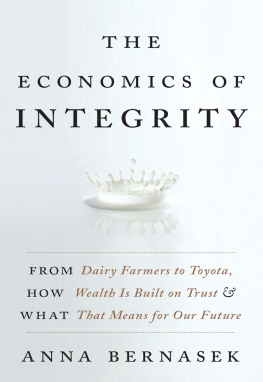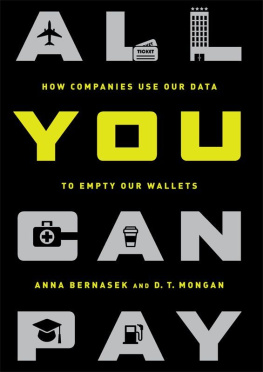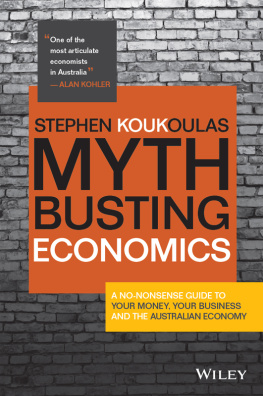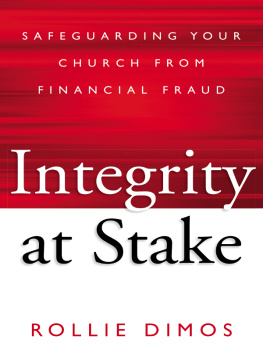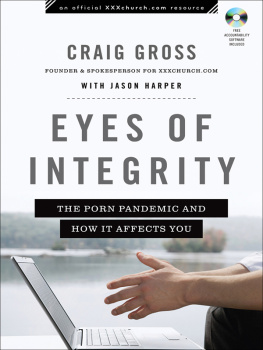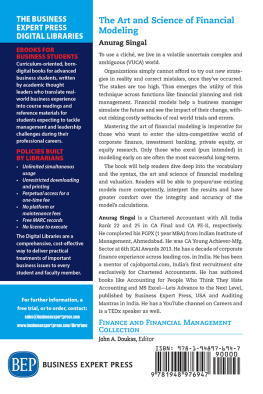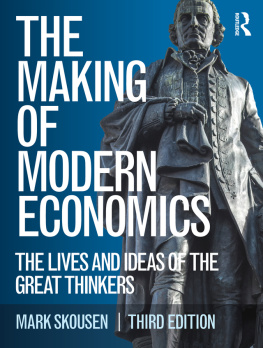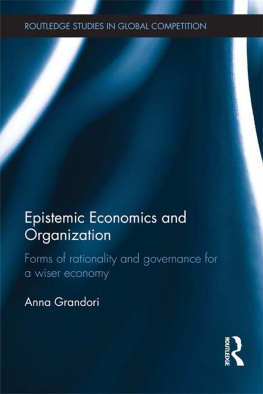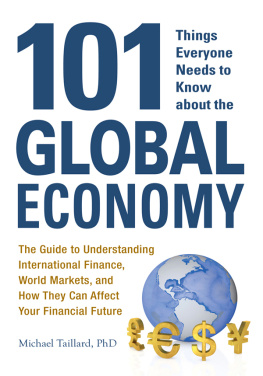For DTM
A t first, when I thought about the 2008 financial crisis, I was angry and pessimistic. It was by far the biggest economic disruption of my lifetime. As a nation, weve spent trillions of dollars to clean up the messa staggering amount of money. The effects will haunt us for decades. Beginning with those terrible concerns, I craved a way to go forward. This book is my own response to the question: What do we do now?
I have had the privilege of seeing the United States as an outsider. I was born in Boston but grew up in Australia. My father, a native of Czechoslovakia, risked his life to escape from communism in 1949 and gained political asylum in Australia. After marrying, he moved to the United States, where he earned a Ph.D. in economics and began his academic career. Like so many of his generation, my father admired the great qualities of the United States and he passed on that admiration to me.
This book pays tribute to the spirit of this nation: a spirit of optimism and idealism. America is a place where people can dream and achieve. To be true to that spirit, my focus isnt on what went wrong. I am not primarily concerned with scandals, fraud, and cheating. Instead, I examine what makes this economy great and show how we can do more of those things.
For too long, the economics profession has minimized the critical role of cooperation in economic activity. Emphasis on the individual has risen above all else and overshadowed the profound ways we depend on each other. You may have heard a successful businessperson boast, I did it all myself. I want to interrupt at that point. Every successful business requires the cooperative effort of many peoplethe banker who believes in the business plan, the customer who trusts the product, the employee who devotes precious time to the business and its owners.
If we ignore the important ways people cooperate to create wealth, we miss the most valuable source of wealth creation imaginable. Recognizing the true value of relationships, we can build stronger relationships and create and share greater wealth. Its a powerful way to reinvigorate the economy.
In this era, when so much seems to be going wrong, many have lost trust in their fellow citizens. But the path forward cant be to stop trusting. We need to build the trust that will power the economy for decades to come. The purpose of this book is to show how that can be done.
I wrote this book for everyone: individuals trying to make sense of the world, companies striving to grow and make a profit, and policy makers seeking ways to build a strong future. Its my sincerest hope to inspire everyone who reads this book to see the true miracle of integrity and trust in the economy. The economy isnt some dirty game where all the players are only out for themselves, trying to make their names and their fortunes. Its a noble project. Each one of us has a meaningful role to play. In the end, what you do really does matter.
For companies slogging it out and for those starting new business projects, I wanted to provide a picture of what really drives business. By appreciating integrity as an asset that is valuable, companies can learn how to invest in it and create wealth. Knowing the techniques for investing in integrity, brands, feedback, and communications, among other things, we can build sustainable and valuable businesses.
All too frequently we are given the false choice between free markets or regulation. Its a pointless debate that has disturbed me for some time. This book bridges the gap between left and right and provides a fundamental approach. Understanding integrity will let us have an honest debate about how to make our system better.
This book provides a tool kit for creating more integrity anywhere in the economy. When policy makers are thinking about changing health care, reforming the tax system, or improving the financial system, they can use these tools to systematically build value. I encourage readers to see that integrity unlocks enormous opportunities for wealth creation that we may not yet imagine.
O n a bitter cold Monday morning in winter, Ben Bernanke, chairman of the Federal Reserve, was in his office, glued to his computer screen. The bank was eerily quiet. Government offices were closed for a national holiday, and Bernanke had canceled travel plans to be at his desk. For months, financial markets around the world had been jittery about the unfolding subprime crisis, but in the early hours of January 21, 2008, nervousness turned to outright panic. Stock markets in Asia and Europe were in free fall. Suddenly global investors were questioning whether the U.S. financial system might be on the brink of collapse.
Investors could sense a meltdown, as one major financial player after another came forward to reveal enormous losses. And there seemed to be no end in sight. If a bank as big as Citibank might not be able to pay its bills, then could anyone? Might the whole grand system of money and markets around the world grind to a terrifying halt?
For some time, Bernanke and others inside the bank had been seeing the cracks appear. It was becoming obvious that the financial system couldnt withstand a significant shock without help from the government. Trillions of dollars, a huge share of the entire economy, had been funneled into housing-related assets. And now those massive investments were becoming increasingly shaky as the housing market reversed course. It wouldnt take mucha shock from global stock markets, for instanceand everything could start to unravel.
With the U.S. stock market set to open the next day, Bernanke made up his mind to act. He knew the arguments of his detractors. The next Open Market Committee meeting was only eight days away. Couldnt a decision wait until then? Too hasty an action could cause a loss of confidence, or even panic. But in eight days time, Bernanke feared it might be too late.
The next day, an hour before the opening bell, the Federal Reserve announced it was cutting interest rates by three-quarters of a percentthe largest emergency rate cut in decades. At the time, it was a dramatic policy change. As the year wore on, though, it turned out to be just a small drop in the vast bucket of money that would ultimately be needed to deal with the escalating financial crisis.
Little did Bernanke know that January morning that the thing he feared the most would soon come to pass. As trust unraveled, firms collapsed, markets broke down, and the entire world paid a heavy price with economic activity slowing at an alarming rate.
The financial crisis of 2008 was first and foremost a crisis of integrity. The seeds were sown as great numbers of people sought their own short-term advantage, knowing that they were putting others at risk. In short, it happened like this: Homeowners took out mortgages that they knew were likely to prove unaffordable later on. Banks lent money knowing it was unlikely to be repaid. Wall Street operators bought the junk mortgages and resold them in the guise of sound investments. Accountants, lawyers, and ratings agencies collected hefty fees for misleading assurances. And investors giddily chased outlandish returns, unconcerned by the all too apparent risks. In the climate of greed, frauds great and small multiplied and spread like potent germs in a warm petri dish.
The whole vast and intricate financial universe, with all its sober rules and gray-haired regulators, had been diabolically converted by the nations brightest minds into a casino where gamblers were risking mountainous piles of other peoples money. Before the chips fell, those gamblers claimed a lions share of false winnings and absconded with fortunes intact, leaving behind a generations worth of toxic residue for the eventual contemplation of investing clients and the taxpaying public.

